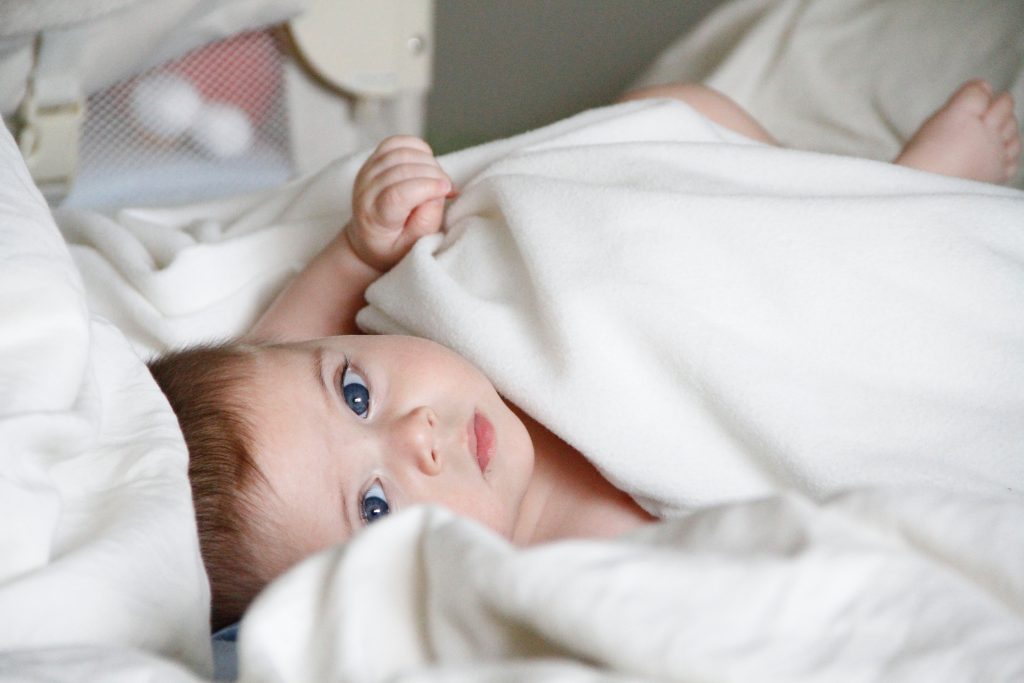For new and veteran parents alike, opinions on communal family beds is usually strongly positive, or strongly negative—with very little in-between. But regardless of which side you fall on the issue, there are both positives and negatives to sleeping in a communal family bed. Considering taking the plunge into communal sleeping? Consider these pros and cons before you do.

Safety
Cons: The American Academy of Pediatrics recommends against sleep sharing with a child under the age of 2 because of the increased risk of suffocation, SIDS, strangulation or other unexplained deaths. Extra dangers include if a parent is overweight or has consumed alcohol. Additionally, it may be hard to get the child to sleep in their own bed at a later date.
Pros: Some parents feel babies sleep better next to them. Safe sleep guidelines can be followed that include a firm mattress and placing the mattress on the floor so the baby can’t fall. Even with co-sleeping, the parent should make sure the baby sleeps on his or her back to reduce the possibility of SIDS. Parents and some pediatricians believe that the close bond formed by co-sleeping helps the child to grow up and be more secure and more confident.
Child Care
Cons: The negative side of this one is that some feel the proximity and movement of the other family members in the bed cause the infant to wake up and feed more often. There are some who believe that the baby can smell the mother’s milk and wakes repeatedly to nurse long after there is a physical need for the baby to have night feedings. Thus, the baby may be harder to wean.
Pros: It’s easier for breast-feeding moms and even moms who are bottle feeding can have a prepared bottle ready to use. Breast-feeding moms learn to feed the baby while on their side with the baby curled up next to them and report that they barely wake up except to help the baby latch on – then, it’s back to sleep.

Relationships
Cons: There are those who find reconnecting after a baby is born hard and returning to an active sex life difficult. Obviously, having a baby in the bed may make these things harder. The parents may be giving up time that they spent cuddling, talking – and being sexually active – when an infant is asleep in the bed. To have time together, they will have to plan and that may be difficult with the baby’s schedule and all the adjustments that come with adding a new family member.
Pros: Other parents say that co-sleeping means that they have to be more resourceful and creative in finding private time – and that puts the spark back in the relationship! Planning on intimacy becomes an adventure for some parents and makes their time together even more special.
If you are considering co-sleeping, remember that for it to work it should be a joint decision for both partners. When the answer is yes, make sure you have the proper bed and that there are not loose covers or pillows that could be a hazard for the baby. Regardless of what you choose, make sure you have the right bed that fits the needs of all sleepers.
Categories

Snooze Culture
The latest news from the world of snooze.

Sleep Science
The facts and science behind superior sleep.

Pillow Talk
Interviews and discussions with masters of sleep.

Buying Guides
Guides for buying mattresses and sleep accessories.

Sleep Hacks
Tips and tricks for the best sleep ever.
TRENDING POSTS
#SleepMythbusters: Is the Snooze Button Bad for You?
Sleep Science
4 Mattress Innovations Changing The Way We Sleep (for the Better)
Sleep Science
5 Lesser-Known Benefits of Rising with the Sun
Sleep Science
5 Reasons You Can’t Sleep and What to Do About Them
Sleep Hacks
Can Music Really Help You Sleep? How One Song Might Be the Cure for Insomnia
Sleep Science
